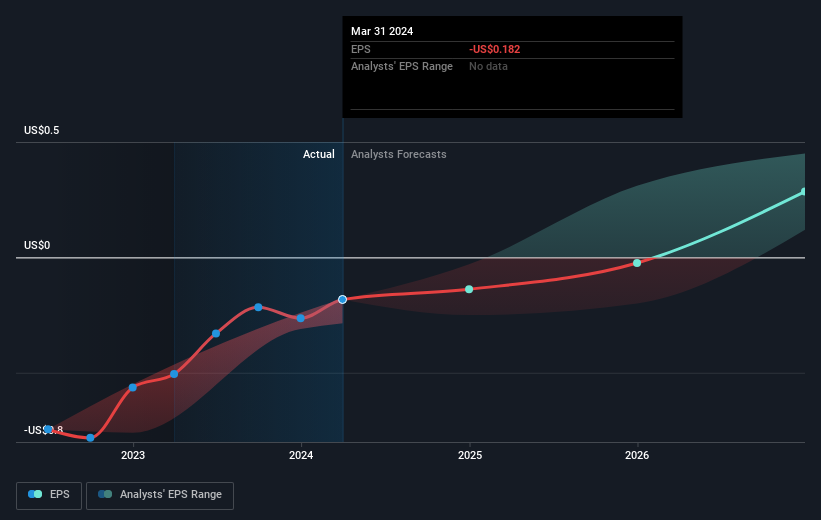When Will Eventbrite, Inc. (NYSE:EB) Breakeven?
With the business potentially at an important milestone, we thought we'd take a closer look at Eventbrite, Inc.'s (NYSE:EB) future prospects. Eventbrite, Inc. operates a two-sided marketplace that provides self-service ticketing and marketing tools for event creators in the United States and internationally. The US$497m market-cap company posted a loss in its most recent financial year of US$26m and a latest trailing-twelve-month loss of US$18m shrinking the gap between loss and breakeven. As path to profitability is the topic on Eventbrite's investors mind, we've decided to gauge market sentiment. In this article, we will touch on the expectations for the company's growth and when analysts expect it to become profitable.
Check out our latest analysis for Eventbrite
According to the 7 industry analysts covering Eventbrite, the consensus is that breakeven is near. They expect the company to post a final loss in 2025, before turning a profit of US$34m in 2026. The company is therefore projected to breakeven around 2 years from now. In order to meet this breakeven date, we calculated the rate at which the company must grow year-on-year. It turns out an average annual growth rate of 61% is expected, which signals high confidence from analysts. If this rate turns out to be too aggressive, the company may become profitable much later than analysts predict.
Given this is a high-level overview, we won’t go into details of Eventbrite's upcoming projects, however, bear in mind that typically a high forecast growth rate is not unusual for a company that is currently undergoing an investment period.
One thing we would like to bring into light with Eventbrite is its debt-to-equity ratio of 195%. Generally, the rule of thumb is debt shouldn’t exceed 40% of your equity, which in this case, the company has significantly overshot. A higher level of debt requires more stringent capital management which increases the risk around investing in the loss-making company.
Next Steps:
There are too many aspects of Eventbrite to cover in one brief article, but the key fundamentals for the company can all be found in one place – Eventbrite's company page on Simply Wall St. We've also compiled a list of important factors you should look at:
Valuation: What is Eventbrite worth today? Has the future growth potential already been factored into the price? The intrinsic value infographic in our free research report helps visualize whether Eventbrite is currently mispriced by the market.
Management Team: An experienced management team on the helm increases our confidence in the business – take a look at who sits on Eventbrite’s board and the CEO’s background.
Other High-Performing Stocks: Are there other stocks that provide better prospects with proven track records? Explore our free list of these great stocks here.
Have feedback on this article? Concerned about the content? Get in touch with us directly. Alternatively, email editorial-team (at) simplywallst.com.
This article by Simply Wall St is general in nature. We provide commentary based on historical data and analyst forecasts only using an unbiased methodology and our articles are not intended to be financial advice. It does not constitute a recommendation to buy or sell any stock, and does not take account of your objectives, or your financial situation. We aim to bring you long-term focused analysis driven by fundamental data. Note that our analysis may not factor in the latest price-sensitive company announcements or qualitative material. Simply Wall St has no position in any stocks mentioned.
Have feedback on this article? Concerned about the content? Get in touch with us directly. Alternatively, email editorial-team@simplywallst.com

 Yahoo Finance
Yahoo Finance 
